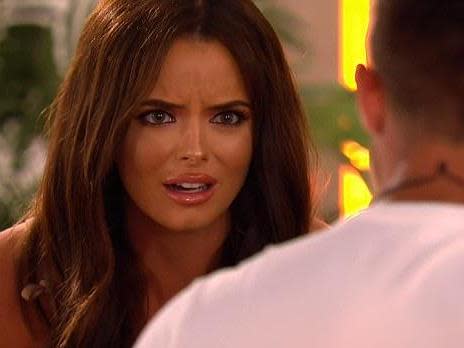Absence makes the heart grow fonder – a winter Love Island will ruin it for all of us
The end of a Love Island series is always an emotional time for fans. Yes, we get our evenings back, but it’s always tempered by the realisation that we will have to wait a whole year to once again get our fix.
Or not, as the case may be. On Monday, ITV announced that the dating show would be returning not once, but twice in 2020, with an additional series set in sunny South Africa set to air post-Christmas.
From the outset, this looks to be a good move for ITV. From 2015-18, viewing figures for the show have increased from half a million to four million and the format has been sold internationally (Love Island USA started across the pond in July). With two series a year, what could possibly go wrong?
Quite a lot, actually. We’ve seen reality programmes increase production on shows at the height of their success before, but this often backfires, with fans getting bored as the market is saturated with both new episodes and contestants, neither of which are very different from what they’ve seen before.
RuPaul’s Drag Race – a show dedicated to finding the next drag superstar – is one such show to fall into this trap. Despite first airing in 2009, the show has only reached international juggernaut status in the last couple of years, picking up the pace on production to please their burgeoning audience. Interchanging the regular show with its All Stars series, five new series of Drag Race have aired since March 2017, with All Stars 5 and Drag Race UK both expected to air before the year is out. At one point in 2018, one series immediately dovetailed another, not even giving fans a week’s breather before diving into more of the same format.
Even Queer Eye, the Netflix makeover show that was once considered to be the most revolutionary programme on TV has been guilty of over-saturating their own content. With the Fab Five’s fourth series hitting the streaming service last week, it’s genuinely shocking to realise that series one only began in February 2018. In that time, the boys have filmed non-stop (a special set in Japan is set to be released later in the year) and while the show has remained heartwarming, the knowledge that I’ve probably seen whatever the show has to offer before has stopped me from watching the new episodes.
But it’s not just the shows themselves that we are being over-saturated with, but the stars they aim to create. Once upon a time, it was possible to become wildly famous off the back of a competition programme. (Alexandra Burke sang with Beyonce on The X Factor, for god’s sake. BEYONCE.) Fast forward ten years and winners of these talent contests aren’t guaranteed the number one singles and million pound record deals they once were.
As more of these winners are churned out, the market for fame and success has become increasingly competitive. Just like the pool for Drag Race contestants grows bigger and sees them competing over live gigs, the cap on the peak earning potential of a contestant is only as long as it takes to air a new series.
Just as Love Island series three’s Olivia Attwood was dropped from her brand sponsorship deal and replaced by series four’s Dani Dyer in 2018, we can expect to see Dani replaced by series five’s Amber or Molly-Mae in the coming weeks. But with a new series airing in early 2020, will these contestants see their time in the spotlight halved? ITV have been praised this year for their commitment to aftercare and preparing the islanders for life outside the villa, but this decision feels like they’re moving the goal posts without consideration for the contestants.
The biggest question about this new series is whether people will watch it in the same levels, which I can’t see happening. Capturing that summer magic in January will be a challenge in itself. In the summer, universities have broken up, you’ve got your holiday booked and you’re in the perfect positive mood to commit to this nightly show for two months.
Fast forward six months: it’s raining, Christmas is over and your heating is somehow broken again. ITV is clearing aiming for a sense of aspiration here, but there’s nothing I want to do less when I’m stuck inside with a cold than watch beautiful people frolic around in bikinis.
Because this is the problem. Love Island is already a show that requires a certain level of commitment. For eight weeks, its fans talk, tweet and group message about nothing else. It is an incredibly intense experience for everyone involved and people love it for that, eagerly awaiting the start in June.
However, I really don’t know if people will hack that twice a year. Add another two months and that’s a third of the year spent obsessing over these sexy strangers. For two months in the summer I am the show’s biggest fan, but come January 2020, I’ll be giving the villa a miss.


